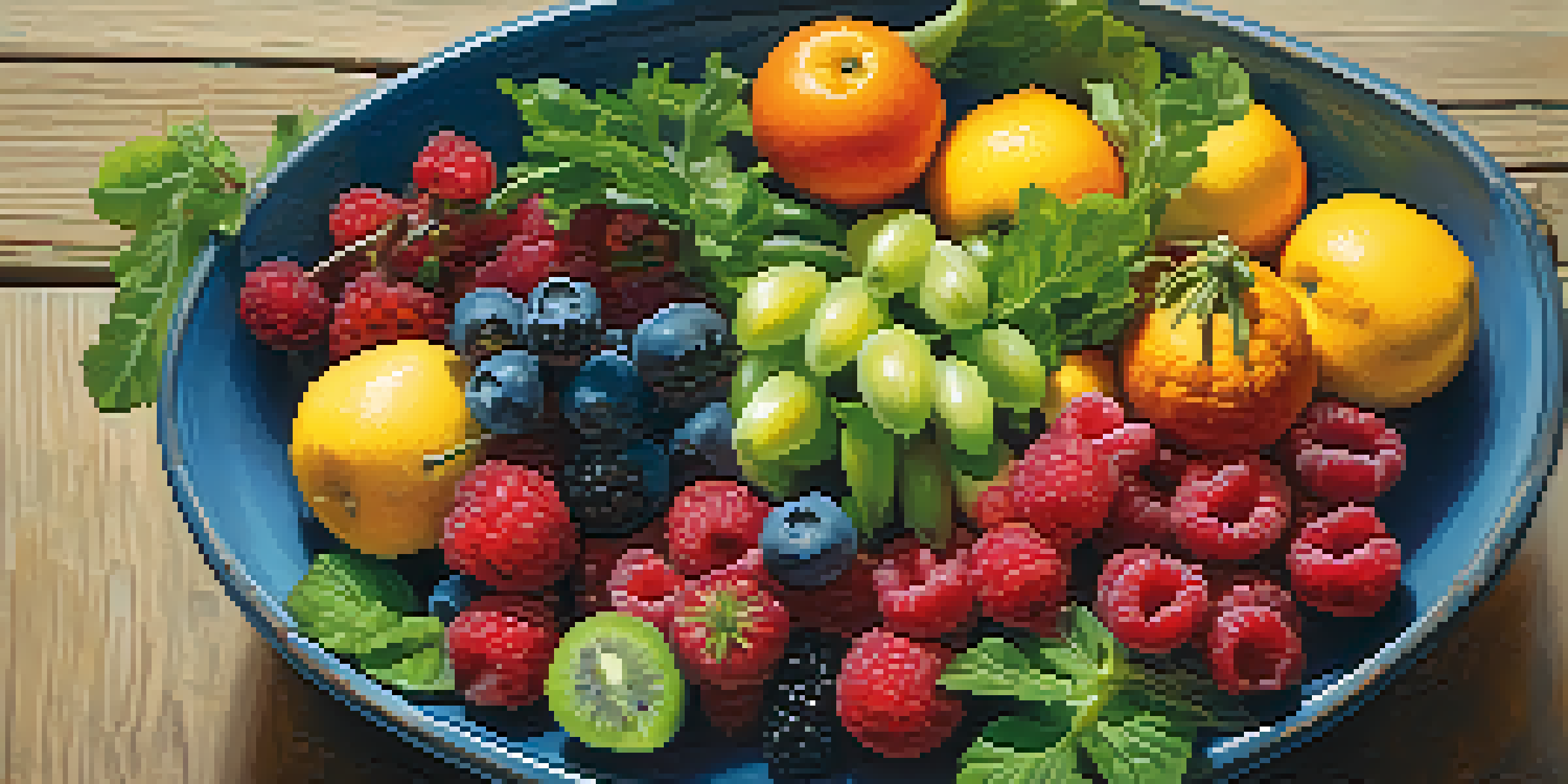Dietary Strategies in Naturopathy for Gut-Brain Balance

Understanding the Gut-Brain Connection
The gut-brain connection is a fascinating interplay between our digestive system and brain. It highlights how gut health can significantly impact mental well-being. When our gut is healthy, it produces neurotransmitters like serotonin, which plays a crucial role in mood regulation.
All disease begins in the gut.
Conversely, an unhealthy gut can contribute to issues like anxiety and depression. This connection is why focusing on dietary strategies is essential for achieving gut-brain balance. By nourishing our gut, we can indirectly support our mental health.
In naturopathy, this relationship is foundational, guiding us to explore natural dietary options that can enhance both gut and brain function. Understanding this connection sets the stage for effective dietary strategies.
Incorporating Probiotics for Gut Health
Probiotics are live bacteria that provide health benefits when consumed, particularly for gut health. Foods like yogurt, kefir, and fermented vegetables are rich in probiotics, which can help restore the natural balance of gut flora. A balanced microbiome is essential for optimal digestion and nutrient absorption.

In naturopathy, incorporating probiotics into your diet is a common recommendation. These beneficial bacteria can also influence the production of neurotransmitters, further supporting mental health. By making small dietary changes, such as adding a daily serving of fermented foods, you can boost your gut's health.
Gut Health Impacts Mental Well-Being
A healthy gut produces neurotransmitters like serotonin, which are crucial for mood regulation.
Regular consumption of probiotics can lead to improved mood, decreased anxiety, and better overall well-being. It's a simple yet effective strategy to enhance the gut-brain connection.
The Role of Prebiotics in Gut Health
Prebiotics are non-digestible fibers that feed the beneficial bacteria in your gut. Foods like garlic, onions, bananas, and whole grains are excellent sources of prebiotics. By including these in your diet, you create a nourishing environment for probiotics to thrive.
Your gut is your second brain.
In naturopathy, prebiotics are viewed as essential companions to probiotics. While probiotics introduce beneficial bacteria, prebiotics ensure they have the fuel needed to flourish. This dual approach can significantly enhance gut health.
Incorporating a variety of prebiotic-rich foods can lead to improved digestion, increased immunity, and a better mood. This strategy supports both the gut and the brain, fostering a healthier you.
Choosing Anti-Inflammatory Foods
Chronic inflammation can negatively impact both gut and brain health, making it crucial to choose anti-inflammatory foods. Foods rich in omega-3 fatty acids, such as salmon, walnuts, and flaxseeds, can help reduce inflammation. These foods not only nurture the gut but also support brain function.
Incorporating colorful fruits and vegetables into your diet is another effective strategy. Foods like berries, leafy greens, and turmeric are known for their anti-inflammatory properties. Naturopathy emphasizes the importance of a rainbow diet to maximize nutrient intake.
Probiotics and Prebiotics Matter
Incorporating probiotics and prebiotics into your diet can significantly enhance gut health and support mental well-being.
By prioritizing anti-inflammatory foods, you create a supportive environment for your gut and brain. This approach can lead to improved mood, reduced anxiety, and better overall health.
Managing Sugar and Processed Foods
Reducing sugar and processed foods is vital for maintaining gut-brain balance. These foods can disrupt gut flora and lead to inflammation, negatively impacting mental health. In naturopathy, it's often recommended to limit these foods to enhance overall well-being.
Instead, focus on whole, minimally processed foods that nourish both your gut and brain. Think fresh fruits, vegetables, whole grains, and lean proteins. By choosing these options, you help stabilize your blood sugar levels, which can have a positive effect on mood and energy.
Making gradual changes, like swapping sugary snacks for fruit or nuts, can significantly impact your health. This dietary shift supports a healthier gut-brain connection.
Hydration: The Unsung Hero of Gut Health
Staying hydrated is often overlooked when discussing gut-brain balance, but it's incredibly important. Water aids digestion and helps transport nutrients throughout the body. Adequate hydration also ensures that the mucosal lining of the intestines remains healthy.
In naturopathy, drinking enough water is a fundamental recommendation. Herbal teas and broths can also contribute to your fluid intake while providing additional health benefits. Staying well-hydrated can improve mood and cognitive function, linking back to the gut-brain connection.
Choose Anti-Inflammatory Foods
Eating anti-inflammatory foods can reduce inflammation, benefiting both gut and brain health.
Aim for at least eight glasses of water a day, and consider incorporating hydrating foods like cucumbers and watermelon. This simple step can have a profound effect on your overall well-being.
Mindful Eating for Better Digestion
Mindful eating is a practice that encourages awareness of the eating process. Taking time to savor your food can improve digestion and enhance the gut-brain connection. When we eat mindfully, we are more likely to recognize hunger cues and make healthier food choices.
Incorporating this practice into your meals can reduce stress and promote a sense of well-being. By eliminating distractions, like screens and multitasking, you can focus on the flavors and textures of your food. This not only enhances your eating experience but also aids digestion.

Mindful eating encourages a positive relationship with food, which can contribute to better mental health. This practice is a valuable dietary strategy in naturopathy for achieving gut-brain balance.